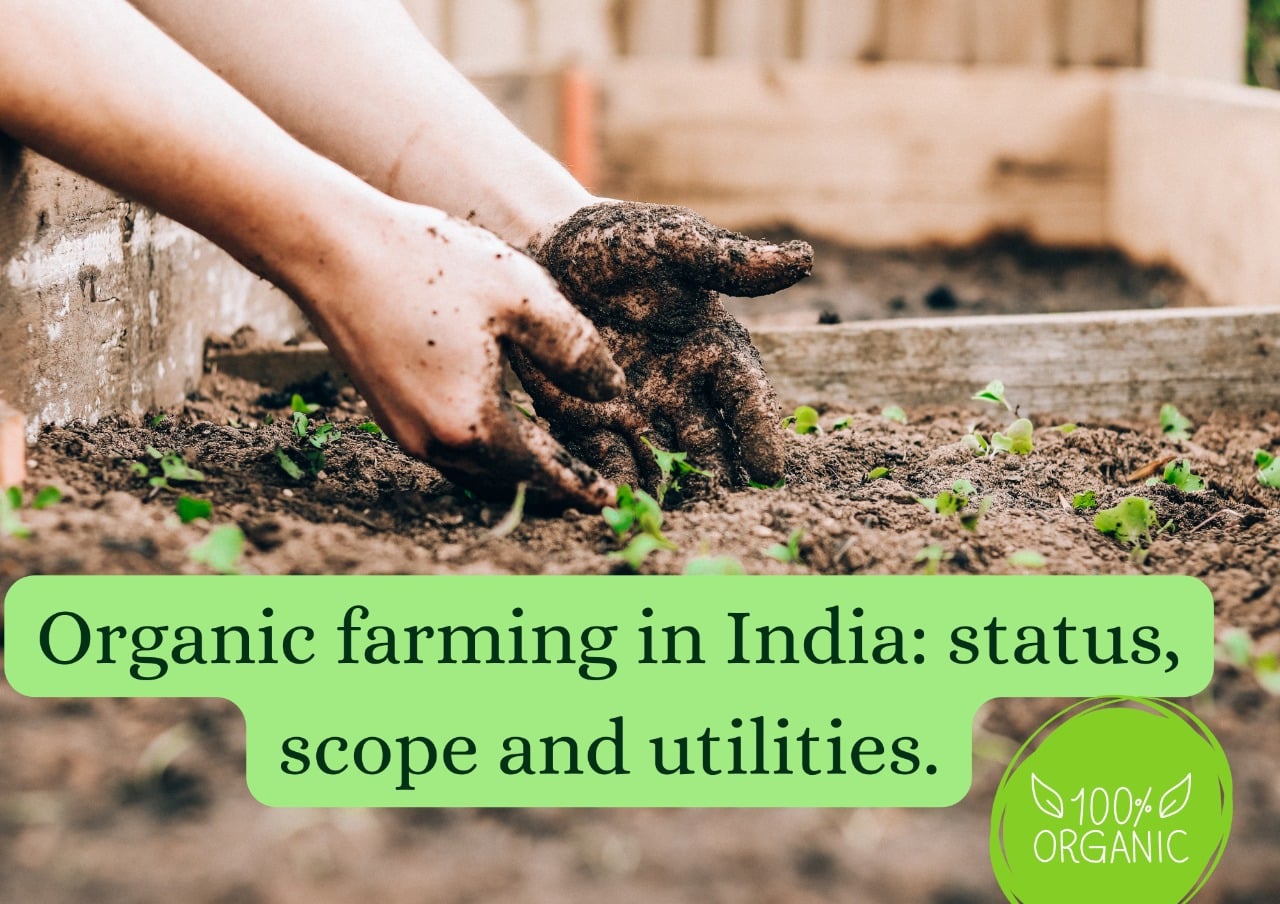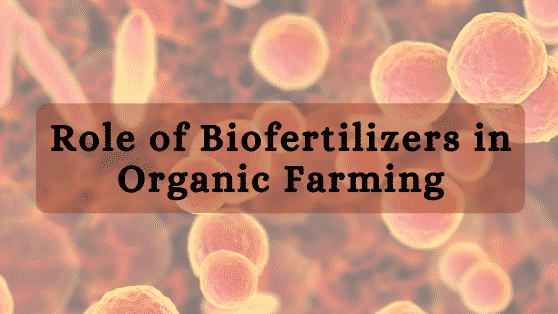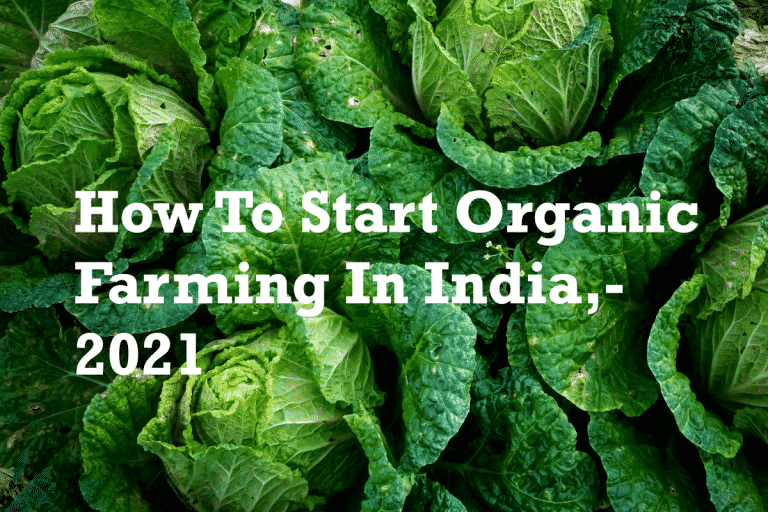Introduction to organic farming
Organic farming or natural farming is a sustainable approach to agriculture where natural elements like manure, compost etc are used instead of synthetic fertilizer. Organic farming’s position in India’s rural economy can be used to help alleviate the country’s growing food security crisis. The growing industrialisation of India’s rural areas has created a scarcity of farmland. Furthermore, since India’s population grows at an exponential rate, food security has become a pressing concern. The excessive use of plant growth inhibitors, pesticides, and fertilisers for quicker agricultural product development is harmful to human health and the environment. At KisaanMitrr we provide consultancy for sustainable agriculture practices like organic farming, hydroponics and mushroom cultivation.
Importance of organic farming
Chemical fertilisers and synthetic pesticides, as well as genetically modified organisms, growth hormones, and antibiotics, are not used in organic food production. Organic farming is also more environmentally friendly and has a higher socioeconomic influence on a country. India is a country endowed with indigenous capabilities and the potential for organic agricultural expansion. Despite being behind the curve in the adoption of organic farming for a variety of reasons, India has experienced significant development in organic agriculture and is currently one of the world’s major organic producers. As a result, organic farming has a significant influence on India’s health by assuring long-term growth.
Importance of organic farm consulting services
Even though organic farming plays a major factor in the upliftment of agricultural practices in India but the implementation of chemical-less farming practices is extremely complex. To fulfil the correct requirement of Nitrogen, phosphorus and potassium via organic fertilizer is difficult which can be solved using India’s top agriculture consultancy service, KisaanMitrr. KisaanMitrrr not only provides curated solutions for N:P:K but also customizable approaches for each client.
Organic farming in India
Organic farming has been practised in India for a long time. Until the British dominated India, the great Indian civilisation flourished on organic farming and was one of the world’s most successful countries. The Indian government recently proposed a budget for 2022 that promotes chemical-free natural farming, beginning with farming lands along the Ganga. Pesticide residues in food, eutrophication of surface and groundwaters, and increased nitrous oxide emissions, all of which are hazardous to the ozone layer of the atmosphere, attracted attention to contemporary agriculture’s negative consequences, and environmentalists pushed for more sustainable agriculture.
Main principles of organic farming
The following are the fundamental principles of organic farming:
- Work as much as possible inside a closed system and use local resources.
- Keep soils fertile for a long time.
- Prevent any and all sorts of contamination that may arise as a result of farming practices.
- Manufacture foods of adequate quantity and good nutritional quality.
- Utilise as little fossil energy as possible in agricultural practices.
- Provide animals with living circumstances that correspond to their physiological requirements.
- Enable agricultural producers to earn a livelihood and realise their full potential as human beings via their labour.
Organic farming is built on four pillars:
1) Organic requirements.
2) A method for certification and regulation.
3) Technology bundles
4) The distribution network.
Benefits of Organic Farming
Nutritional advantages and health protection
Consumer and producer interest in the nutritional content of organically and conventionally cultivated foods has developed in response to the rising demand for organically farmed fresh items. When compared to conventionally cultivated meals, organically grown foods, particularly green vegetables and tubers, have more dry matter. Organic cereals and goods have less protein than conventional cereals, but they have higher quality proteins with higher amino acid scores.
In comparison to conventionally cultivated foods, organic foods have no pesticide residues. Organic fruits have a higher total sugar content, which makes them taste better to customers. Bread prepared from organically cultivated grain had a greater flavour and had more flexibility in the crumb. Fruits and vegetables cultivated organically have been shown to taste and smell better. Organic veggies are often lower in nitrates than ordinary vegetables. Organic farming can also be done as an alternative for home gardens and with the help of consultancy services like KisaanMitrr even small landowners can utilize this agricultural practice.
Impact on the environment
In terms of environmental protection, organic farming has a protective function. The environmental impact of organic and conventional agriculture has been thoroughly researched. Organic farming is thought to be less hazardous to the environment since synthetic pesticides are prohibited, the majority of which are potentially harmful to water, soil, and local terrestrial and aquatic fauna. Furthermore, owing to crop rotation procedures, organic farms are better at preserving biodiversity than conventional farms. When compared to conventional farming, organic farming enhances soil physical-biological qualities such as organic matter, biomass, greater enzyme, improved soil stability, enhanced water percolation, holding capacity, reduced water, and wind erosion. Thus, it is extremely important to find a sustainable approach to farming that organizations like KisaanMitrr help to achieve. KisaanMitrr provides an in-depth cost-benefit ratio, DPR and other utilities necessary for achieving sustainability.
Impact on the economy
Organic farming necessitates more labour, resulting in more income-generating jobs per farm. Organic products often cost more than conventionally grown crops, and the price varies depending on a variety of factors in both the input and output arms. On the input side, the high cost of acquiring organic certification, the high cost of labour in the field, and the lack of subsidies on organics in India, unlike chemical inputs, all contribute to the price of organic goods. Because of the high economic value, many small and medium-scale farmers are interested in this sector.
KisaanMitrr provides a complete business model to individuals who are interested in organic farming. However, because of rising health awareness, people are prepared to pay a premium price. Some organic products, as well as organic farming in India, are in low supply due to strong demand, resulting in a cost increase. Because biofertilizers and insecticides may be generated locally, farmers’ annual inputs are also inexpensive. Workers on organic farms are less likely to be exposed to agricultural chemicals, which improves their occupational health. Because organic foods have fewer nitrates and more antioxidants, they have a longer shelf life than conventional foods.
Conclusion
Organic food production prices are greater in industrialised nations since organic farming requires a lot of manpower, which is expensive in these places. Organic farming, on the other hand, is considered a good cost-effective answer to the rising expenses of chemical farming in countries like India, where labour is plentiful and relatively inexpensive. The Indian organic food sector is driven by the growing demand for organic food items in developed nations, as well as the Indian government’s considerable support and focus on agri-exports. If you would like to know more about profitable organic farming, please get in touch with us today!


